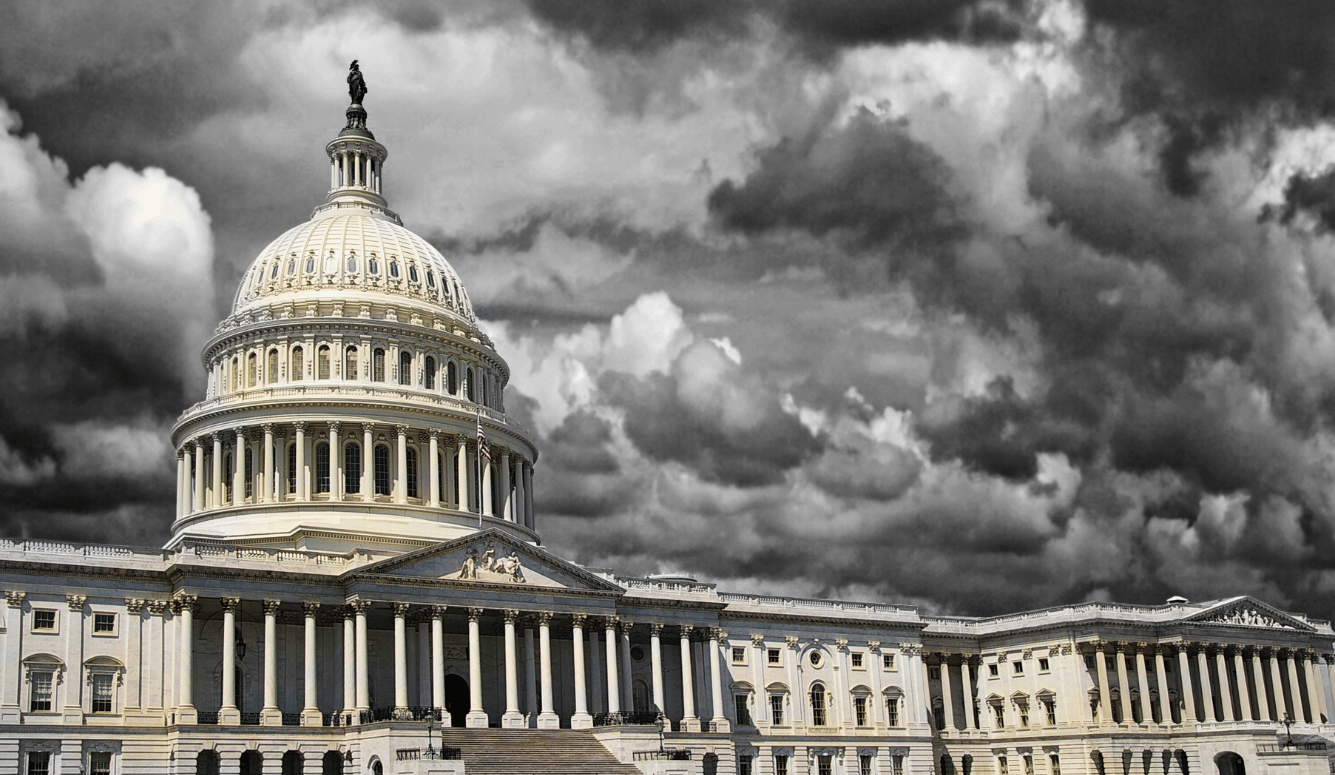Law
Against the Death Penalty
The state should not assume the right to end the lives of its citizens at will.

Editor’s Note: This article was first published in Areo Magazine in September 2023.
The last execution in Great Britain took place in 1964, but Tory politicians still periodically raise the possibility of reinstating capital punishment in tub-thumping speeches designed to convince the public that they are tough on crime. In an interview with the Spectator in February of this year, Conservative Party Vice-Chairman Lee Anderson made it clear that he would support the return of capital punishment. Even though there is little possibility that it will be brought back any time soon, the debate over capital punishment is one of those eternal arguments that every generation will have to rehash. The recent sentencing of Lucy Letby, an NHS nurse who was found guilty of murdering seven babies and attempting to kill a further six, and who now faces a lifetime in prison, has somewhat reinvigorated the debate in Britain. Letby has thus far made no confession, had no obvious motive, and has shown no signs of remorse for the crimes of which she has been convicted. The sheer depravity of these crimes has led some—particularly on the Right—to protest that the whole life sentence she has received is not enough, that a pound of her flesh is required.
The argument over the death penalty derives much of its passion and intensity from two extreme scenarios. The first is that of the cold-blooded murderer, who, after serving out his prison sentence, is released, and goes on to kill again. This, the partisans for capital punishment say, ought to weigh heavily on the consciences of the abolitionists. If the unrepentant murderer had been executed, he would not have had the opportunity to take the life of another innocent person.
Opponents of capital punishment prefer to evoke the opposite scenario: that of the innocent man executed for a crime he did not commit. This, they say, epitomises the key issue any proponent of capital punishment should grapple with: that the irrevocability of the act means that miscarriages of justice can never be rectified, and any failure of the justice system is therefore calamitous.
Both these scenarios pose serious moral dilemmas. Any decent society should wish to avoid both. Nevertheless, they are not equivalents. When an innocent person is executed, it generally implies that a guilty party has managed to elude the law and remains at large to potentially commit more crimes. The offence to justice is thus twofold. Moreover, there has never been a society—no matter how extensive its use of capital punishment—with a legal system flawless enough to guarantee that no murderer can ever kill again. We do not know how to prevent this from happening. We do know, however, what it takes to prevent the possibility of executing an innocent: we can guarantee that by abolishing capital punishment.
What we are really discussing here is the ethics of killing. Many people’s visceral opposition to capital punishment stems from the basic idea that killing is wrong; therefore, the death penalty is wrong because it’s a form of killing. Of course, this assumes that killing and murder are synonymous—but they aren’t. Even the author of the Book of Exodus understood this distinction. The original commandment said “thou shalt do no murder” and not, as modern translations proclaim, “thou shalt not kill.”
There are circumstances in which killing is justified, even necessary: in self-defence, in defence of someone else, during a just war, or during a popular insurgency against an occupying power. While the situational ethics involved in all such cases can be complicated and ambiguous, only an extreme pacifist could be opposed to the use of lethal violence under any and all circumstances. The argument over capital punishment is whether it is comparable to other justified and necessary forms of killing. It is not. There is a clear difference between killing a would-be murderer who poses an imminent threat to you or to someone else and coldly executing a convicted murderer—often years or even decades after the crime—who has been disarmed and doesn’t pose an imminent threat to society as they are in secure custody in a prison.

Even the Lucy Letby case cannot nullify these arguments against the death penalty. It is true that radical evil exists. The world is rife with atrocities, and their perpetrators certainly do not merit our lenience. But the death penalty is not an effective way to reduce societal violence. Many American states have the death penalty, and yet the US has the highest homicide rate of any developed nation. There is no substantial difference between the murder rates of American states that have the death penalty and those that don’t. In the European context, Germany and Italy prohibited capital punishment immediately after the Second World War and their homicide rates are among the lowest in Europe.
Some argue that capital punishment is justified if we reserve it for the very worst crimes—but no one will ever be in possession of enough information to make that judgement call and to determine which killer or rapist is fit for execution and which is not. (This is what religious people mean when they say that people should avoid playing God.) The rule of law exists precisely in order to free us from having to rely on subjective evaluations of relative atrocity or wickedness—or at the very least, to rein in our tendency towards kneejerk judgements.
The argument over capital punishment isn’t really about prevention or deterrence—at which it is scarcely more effective than imprisonment—but about retribution. One shouldn’t sneer at this powerful natural impulse. To some extent, state-sponsored capital punishment helps protect society from the ravages created by vendettas, lynch mobs, and vigilantism. Numerous tragedies have resulted from the desire to see evil men get a taste of their own medicine, to make them suffer just as they made their victims suffer, to take an eye for an eye, a life for a life. Capital punishment tames this impulse by placing the responsibility for vengeance on the state, rather than on individuals.
But as George Orwell—reporting from Germany in 1945, on some of the most horrific crimes in history—writes, the idea of exacting retribution or revenge, however intoxicating, is in reality merely a “childish daydream”:
Properly speaking, there is no such thing as revenge. Revenge is an act which you want to commit when you are powerless and because you are powerless: as soon as the sense of impotence is removed, the desire evaporates also.
Who would not have jumped for joy, in 1940, at the thought of seeing S.S. officers kicked and humiliated? But when the thing becomes possible, it is merely pathetic and disgusting. It is said that when Mussolini’s corpse was exhibited in public, an old woman drew a revolver and fired five shots into it, exclaiming, “Those are for my five sons!” It is the kind of story that the newspapers make up, but it might be true. I wonder how much satisfaction she got out of those five shots, which, doubtless, she had dreamed years earlier of firing. The condition of her being able to get close enough to Mussolini to shoot at him was that he should be a corpse.
More serious proponents of capital punishment concede that what they want requires an almost perfect justice system. Peter Hitchens, for example, admits that, though he would like to see the return of capital punishment, he would hate it to happen right now because the “shuddering jalopy” that is the British criminal justice system is “simultaneously weak and cruel.” Hitchens rightly points out that there have been travesties of justice—such as the case of Andrew Malkinson, who spent 17 years behind bars after being falsely convicted of rape. And, as Hitchens also concedes, the abolition of safeguards such as unanimous jury verdicts would quickly make any reintroduction of the death penalty an atrocity.
As a result of the known flaws in our justice system, proponents like Hitchens often feel comfortable enough arguing for capital punishment in theory, but not quite in practice—at least, not yet. This is to treat the topic as if we were having an abstract philosophical argument in a university seminar, rather than debating a real-life social policy with life-or-death consequences.
At the same time, since it is often considered de rigeur to oppose capital punishment if you claim to be a liberal-minded person, it’s all too easy to rely on a few easily recitable—but flawed—stock arguments against it. If you argue, for example, that the problem is that the death penalty is applied in a racist manner—as it often is in the United States—that just invites the response that the problem is racism, not capital punishment, and that the solution is therefore a more equal and fair application of the death penalty, not its abolition.
There is also a naive belief among liberals that in utilising the death penalty, the state stoops to the level of the murderer, thus creating a moral equivalence. But as any anarchist will tell you, states are already parties to mass murder and can kill you in all sorts of ways, without having to resort to capital punishment. States abuse their cherished monopoly on violence all the time. They carry out extrajudicial killings; they run torture regimes; they have kill lists; they stockpile enormous arsenals of nuclear weapons that could end humanity. Great Britain and other Western states export many tonnes of lethal arms to regimes who we know will use it against their own civilians and against those of other nations. The state is already only too much of a killer. It isn’t going to become any more of one by instituting capital punishment. But we should oppose capital punishment anyway.
The core argument against capital punishment is this: the state should not assume the right to end the lives of its citizens at will. If it does, this reveals that the relationship between state and citizens is more totalitarian than liberal, more thanatocratic than democratic and that the citizens are considered the property of the state and their lives are at the state’s mercy. There is a key Enlightenment liberal argument against the death penalty that originates with Cesare Beccaria’s 1764 work On Crimes and Punishments: “the death penalty is not a right, but the war of a nation against a citizen.”
As Beccaria argues, we must limit the state’s power to inflict violence on its citizens. Just as the use of torture has no place under the rule of law, neither should capital punishment. It is no coincidence that almost all the countries that currently practise capital punishment—though the United States is one notable exception—are either absolute monarchies, theocracies, or dictatorships, where citizens are treated as subject to the state’s will and readily disposable. Even in America, as libertarian critics have pointed out, an exorbitant amount of government bureaucracy is necessary in order to maintain the machinery of death.

The state evolved as a necessary compromise. Since society hasn’t evolved to a stage at which it could be truly self-governing, the state remains a tragic necessity because to some extent men must still be governed, and things must be administered in order for society to function. But the coercive elements of state power can and must still be reined in, in the interests of civil society. We need to be protected from the state just as much—perhaps even more—than we need to be protected by the state. In Britain, we accept the necessity of those police who have been trained and authorised to do so occasionally having to use lethal force in response to imminent threats to the public. But it doesn’t follow that we therefore need a routinely armed police force. That would only increase state power over the people. Limiting police use of firearms protects citizens from extrajudicial murder. Likewise, prohibiting capital punishment protects citizens from state overreach. Bringing it back would not protect us from the violent criminals among us.
Britain’s justice system has many problems. Yet, the UK cannot be compared with such totalitarian regimes as Iran, Saudi Arabia, and North Korea. One of the key differences is that we do not endorse judicial killing. I, for one, am glad of that and I find it worrying that the powerful United States still indulges in this odious, superstitious practice.






